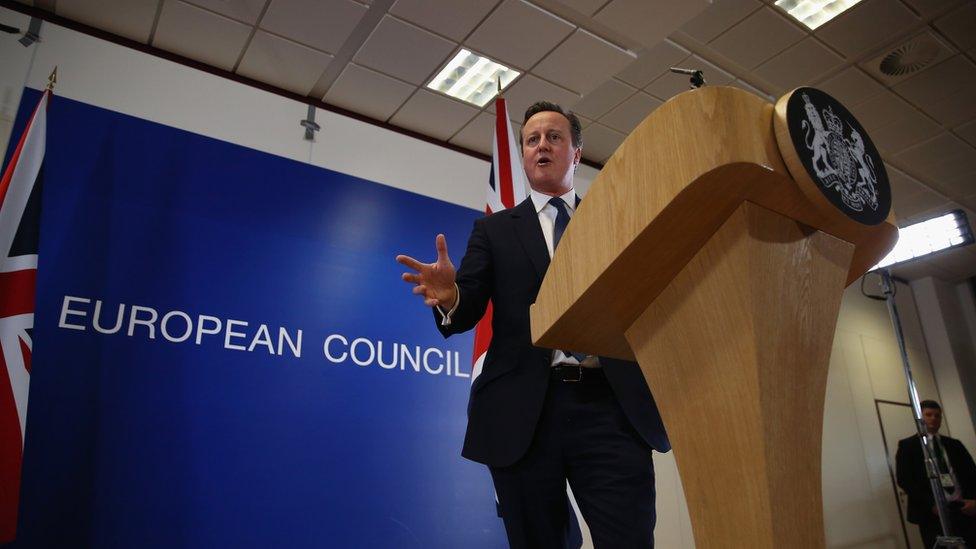Reality Check: Is the PM's Brussels deal legally binding?
- Published

Is Michael Gove correct that the prime minister's renegotiation deal is not legally binding? Lawyers will argue it both ways.
The deal is not a formally ratified treaty, but would still be regarded by many as legally binding in international law.
The Vienna Convention on the law of treaties makes it clear that states can express their consent to an international agreement in a variety of ways - signature, acceptance or approval.
What is important is the substance of the agreement and not the label "treaty". As Mr Gove acknowledges, this is a "deal between 28 nations all of whom believe it". In other words all of whom intend to be bound by it.
Theoretically possible
The more significant question is, perhaps, what is the value and status of the deal as a matter of EU law?
It is intended to be fully compatible with the existing EU treaties - all of the member states agree on that. However it is not an amendment to the existing treaties and remains subject to the interpretation of the European Court of Justice (ECJ).
That may make it sound weak and vulnerable to legal challenge. However, all measures of EU law under the existing treaties are subject to interpretation by the ECJ.
Should any state subsequently raise the issue of the relationship between the deal and the existing EU treaties, that would be a matter for the ECJ to rule upon.
Reality Check verdict: While some legal experts acknowledge that a legal challenge is theoretically possible, the ECJ would give substantial weight to the fact that all 28 member states have agreed both the deal and that it is compatible with the existing treaties. That makes the chances of a successful legal challenge slim.



- Published22 February 2016
